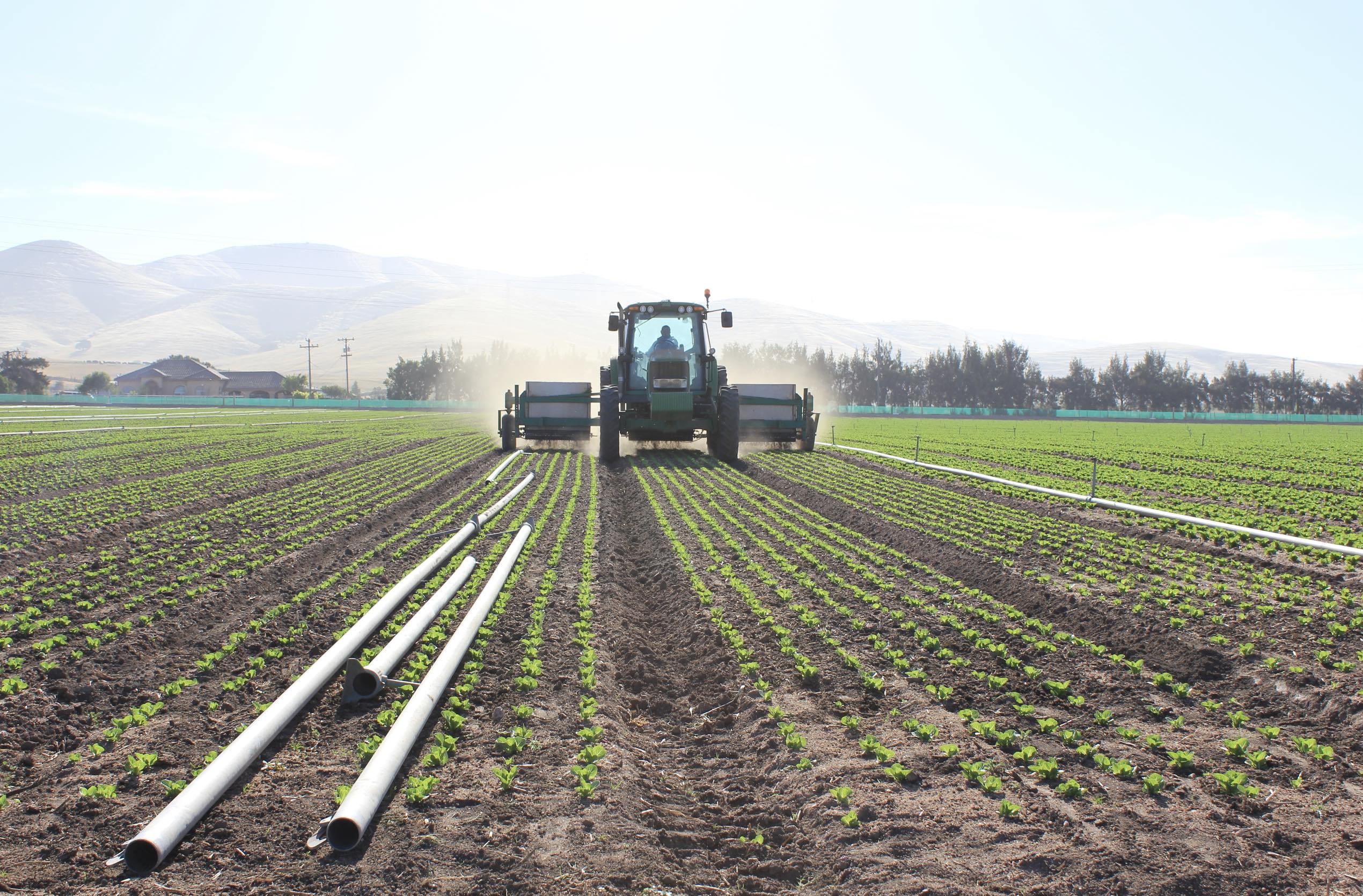The California Department of Food and Agriculture (CDFA) Produce Safety Program is now actively performing inspections of California produce farms to verify compliance with food safety regulations under the federal Food Safety Modernization Act’s (FSMA) Produce Safety Rule. These new regulations apply to most California fruit, nut and vegetable farms, but there are some exceptions when it comes to who and what is not covered.
“Who” Is Not Covered
The FSMA law contains two sections for businesses that grow and process food. One section is the Produce Safety Rule, which primarily applies to businesses that grow, harvest, pack or hold produce. The other is the Preventive Controls Rule, which applies to facilities. There is some crossover, so to determine if your operation falls under the Produce Safety Rule (PSR), please see this flow chart.
The U.S. Food and Drug Administration (FDA) offers some exemptions for who is covered by the PSR, particularly for very, very small farms (those with annual sales less than $25,000) or for farms that grow produce only for their own consumption or for limited distribution.
FDA also provides what is called a “qualified exemption” for certain farms that provide produce to qualified end-users. The farm must have sold more than 50% of food directly to the qualified end user and the value of all food sold must be less than $500,000. Qualified end-users are defined as consumers, restaurants or retail food establishments located in the same state or the same Indian reservation as the farm or if the end user is not more than 275 miles away from the farm. For more information, see how FDA Provides Flexibility to Farms Regarding Eligibility for the Qualified Exemption Under the Produce Safety Rule.
Farms that exclusively grow produce items not covered by the PSR (see below) are also exempt.
“What” Is Not Covered
The FDA has identified 30 produce items that are exempt from the PSR because they are rarely consumed raw. These items are: asparagus; black beans, great Northern beans, kidney beans, lima beans, navy beans and pinto beans; garden beets (roots and tops) and sugar beets; cashews; sour cherries; chickpeas; cocoa beans; coffee beans; collards; sweet corn; cranberries; dates; dill (seeds and weed); eggplants; figs; ginger; hazelnuts; horseradish; lentils; okra; peanuts; pecans; peppermint; potatoes; pumpkins; winter squash; sweet potatoes; and water chestnuts.
Additionally, some industry groups have petitioned the FDA requesting certain produce items be added to the list of exempted products because they go through processes that kill microorganisms prior to consumption. These items include: almonds, which are roasted, blanched or pasteurized prior to consumption; wine grapes, which are fermented; hops, which are used exclusively for beer – another fermented product; and, pulses, which include items very similar to the dried bean products already included in the list of exempted commodities.
For these items, the FDA is exercising “enforcement discretion,” which means growers of these commodities are not expected to meet any of the PSR requirements. More details about these exemptions are available here.
Also not covered by the PSR are items that receive commercial processing to adequately reduce the presence of microorganisms. These are products such as tomatoes or peaches grown for canning purposes or for olives grown for olive oil. To qualify for this exemption, farms must disclose to the processor or handler that the product has not been grown in accordance with PSR regulations. This disclosure can be provided through labels, bills of lading, freight bills, shipment-specific certificates or other documents. It is highly recommended that producers verify with their processor or handler that their processes are eligible for this exemption and to ensure the language used in the disclosure statement complies with the regulation.
It is also important to note that this exemption applies ONLY to items that are grown for processing. So, if your farm grows tomatoes for fresh market and for canning, the tomatoes grown for the fresh market are covered by the PSR. As noted above, farms that exclusively grow non-covered items are not subject to the regulations, but if a farm grows any covered item, it is subject to the PSR with respect to those items.
If you believe you are exempt from the Produce Safety Rule, CDFA is asking that you complete and submit this questionnaire (Spanish). If you have determined that you are not exempt and have yet to correspond with the CDFA Produce Safety Program (PSP) about PSR compliance, please visit the PSP Farmer Questionnaire web page to submit a questionnaire and ensure the program has the most accurate information available. Much more detailed information about PSR exemptions is available on FDA’s FSMA Final Rule on Produce Safety website. You may also contact PSP with any specific questions you may have.


